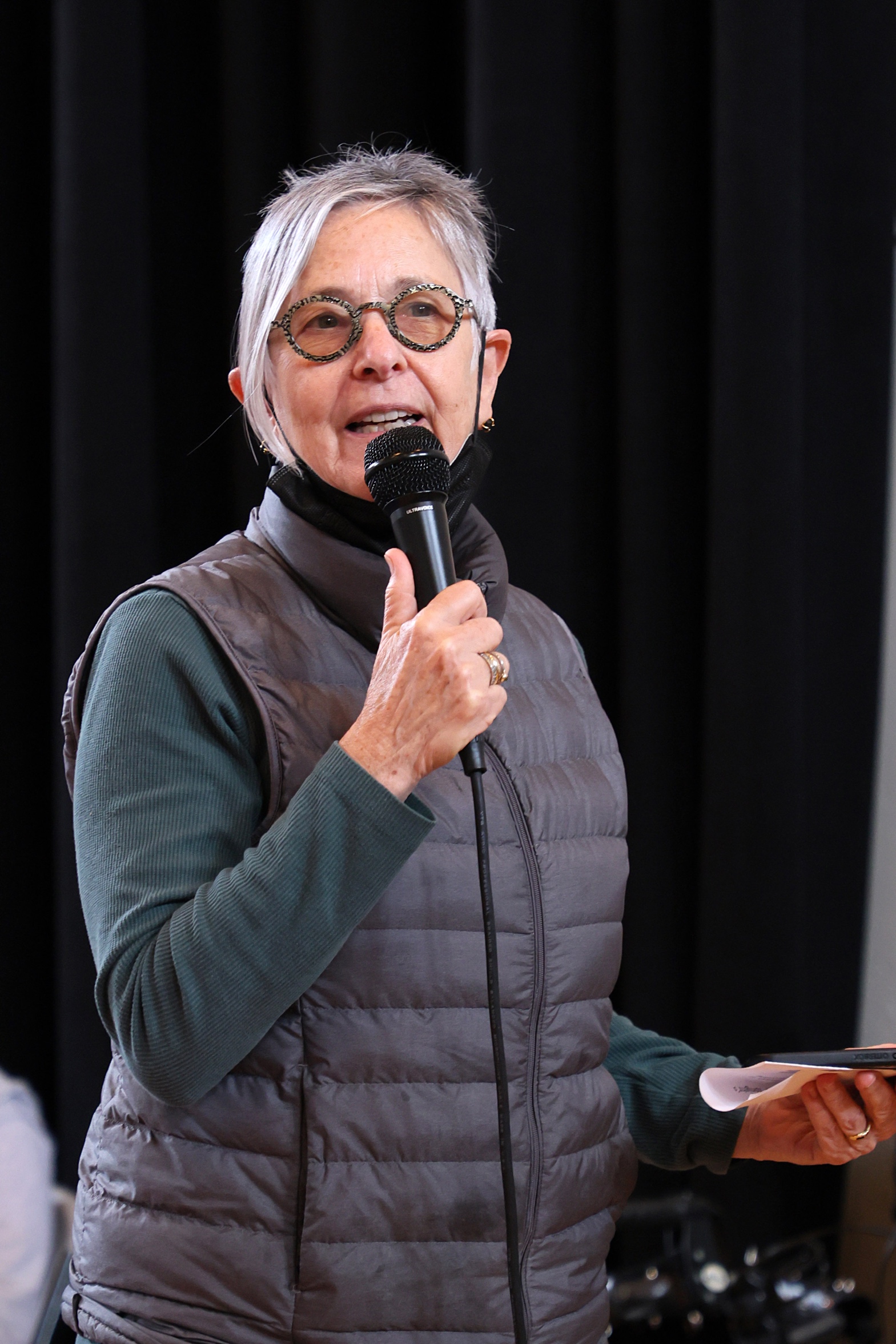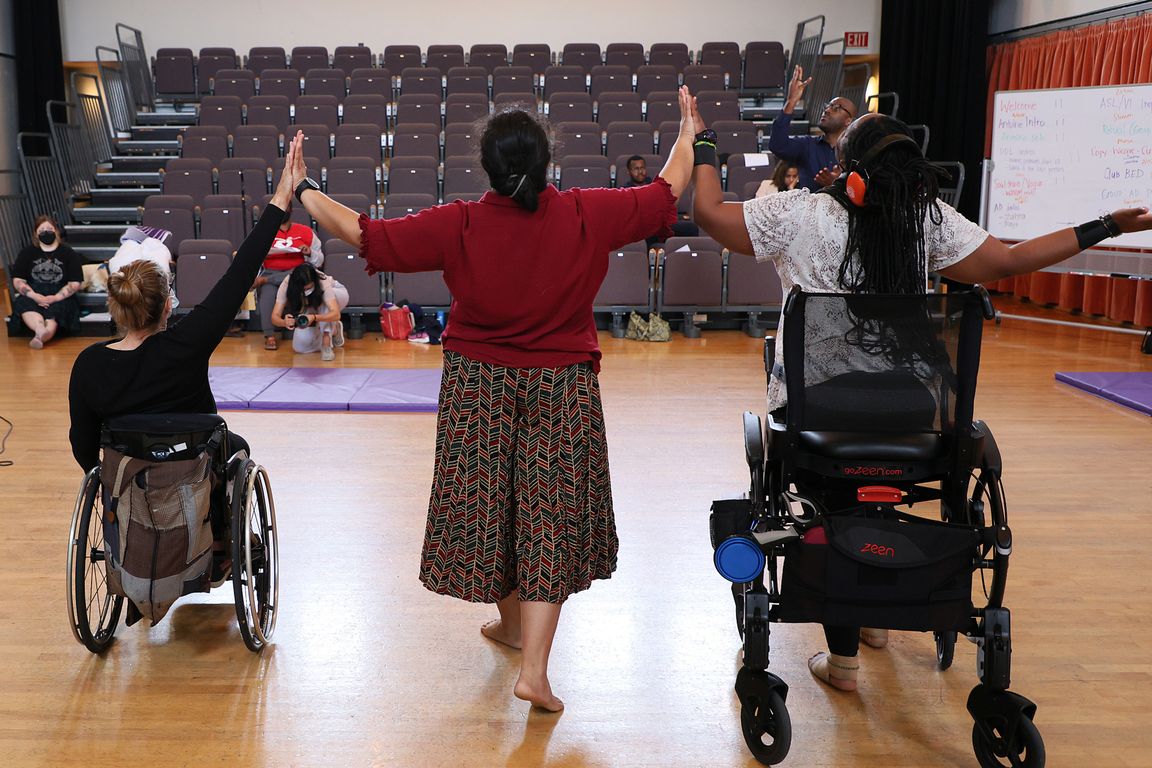Key Takeaways
UCLA has launched a disability studies major, the first of its kind at a California public university. The minor, created 16 years after the creation of an existing minor, will admit its first students in fall 2023. The program will expand its enrollment with the hiring of two new faculty members, including several professors from the arts.
Due in part to the overwhelming popularity of UCLA’s disability studies minor, which it has offered for 16 years, the campus is offering a new disability studies interdepartmental major, the first of its kind at a California State University.
The new major is expected to accept its first students in the fall 2023 semester, and the hiring of two new faculty members will expand the program’s capacity from an existing minor established in 2007.
While many schools across the country offer applied programs that focus on rehabilitation, diagnosis and services, they tend to view disability as a problem to be fixed or cured. These programs often ignore the ways in which disability is generated and reinforced by society, as well as the active role of disability culture in creating a more inclusive society, says choreography professor Victoria Marks. She is also chair of the new major and department director of the Dance Disability Lab in the Department of World Arts and Cultures/Dance at the UCLA School of Arts and Architecture.
“Disability studies as a discipline sees bodily diversity not as something to be repaired or fixed, but as intersecting identities that are constructed by the way access is shaped, cities are built, and laws are enacted,” Marks said. “UCLA’s new major will be one of the few programs that looks at disability as a historical, social, cultural and political experience, and examines the ways in which society, culture, institutions, spaces and mindsets systemically and socially produce disability.”
Marks gave as an example curb cuts, which are ramps at road corners and intersections. Before Congress passed the Americans with Disabilities Act in 1990, ramps weren’t required and curbs presented obstacles for people who couldn’t climb the steps comfortably. ADA-enforced curb cuts remove obstacles not only for people who regularly or temporarily need wheelchairs or other mobility devices, but also for parents with strollers, shoppers with carts and cyclists.

Juan Taro
Activities for the 2023 Dancing Disability Lab cohort.
“Disability studies challenges all of us to consider how society is structured to create the identity of disability,” Marks said. “It challenges us to rethink ‘normal’ and make visible the implicit ableism that comes naturally to many of us.”
In 1994, Syracuse University in New York became the first university in the United States to develop a disability studies program, and in 2003 the University of California, Berkeley, became the first California university to create a minor in the field, although the major remains rare.
“In a disability studies major, we think about who is telling the stories of people with disabilities, what stories have been told about disability, and how we can imagine and build the future,” Marks says. “Ensuring disability access isn’t just important for people with disabilities. Paying attention to human diversity and the different ways we move through spaces, both manmade and digital, benefits everyone.”
The interdisciplinary major, located within the Undergraduate Education Initiative, includes a new introductory course, “Constructing Ability (Disability) and Ability Discrimination in the United States,” and the minor’s popular course, “Disability Perspectives.” Students can also choose from dozens of interdisciplinary options, from the arts to the sciences. They can study performance and disability with Marks or go to the Social Genetics Institute to take “The Future of Humanity: Bioethics of Health and Disability.” They can try courses like “Anthropology of Deviance and Abnormality,” “Asian American and Pacific Islander Health Issues: Myth or Model?,” and “Enhancing Normalcy: Deafness and Disability Studies.”
“There are many reasons why we knew we were ready to create this major, but one of them was that Disability Perspectives was enrolling at full capacity every quarter,” Marks said. Then the pandemic hit, and with it came long COVID-19, understanding what it’s like to be immunocompromised, caring for an elderly person or child without support, emotional fatigue, and mental health challenges. All of this contributed to a deeper understanding of access and a broader awareness of disability identity, Marks said.

Juan Taro
Victoria Marks, professor of choreography, chair of the Disability Studies department and director of the Dancing Disabilities Lab at UCLA;
“Throughout the pandemic and when we returned to in-person classes, students formed a powerful Disability Students Union and persuasively advocated for access and resources,” Marks said. “The connection between disability and other marginalized identities was clear when we looked at access to health resources, education and transportation.”
The new major’s faculty includes several professors from the arts who are often overlooked in disability studies programs, such as Lauren Lee McCarthy of design and media arts, who studies issues of accessibility; Raymond Knapp of musicology, who teaches a course on disability in music and musicals; Kathleen McHugh, who teaches a course on the representation of disability in film; and Helen Deutsch of literature, who has reexamined the work of 18th-century poet Alexander Pope in light of his physical disability, believed to have been caused by spinal tuberculosis.
The two new faculty positions in the major are split appointments, shared with other departments on campus and funded by the Vice Provost/Dean. These hires will complement existing research and teaching in Disability Studies across campus.
The internship requirement provides students with the opportunity to work for a community organization that serves people with disabilities or a government agency responsible for developing disability-related policies. Students will use their academic experience to examine ableism and paternalism, understand how organizations construct or frame disability, and contribute to progressive thinking in their fieldwork.
Designed to foster experimentation in teaching and research, the Disability Inclusion Lab will expand thanks to a gift from Judith Smith, professor emeritus and founding dean of the Herb Alpert School of Music, and funding from UCLA’s Office of Equity, Diversity and Inclusion. Smith’s gift will enable the Disability Studies Program to create “Legacy and Future: The Judith E. Human Community Partnership,” honoring the disability rights activist of the same name. The Human Partnership will have three-year funding and will annually connect a disability community activist with a faculty partner. The activist will be awarded $20,000 and the faculty partner will be awarded $10,000 for their collaborative work. Each year, a new pairing will collaborate on a project to advance disability visibility and justice, benefiting both UCLA and the disability community.
“UCLA’s new strategic plan positions ‘inclusive excellence’ as one of its key foundations, so the new Disability Studies interfaculty program was a natural fit,” Marks said. “This program will ensure that disability justice, culture and rights are central to the knowledge production of a world-class university.”

